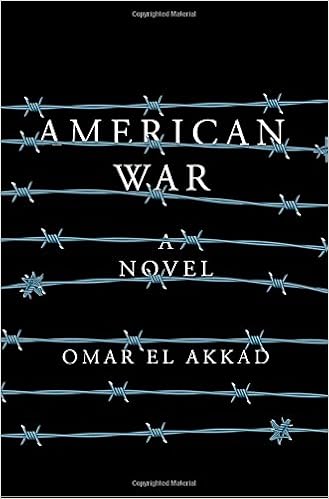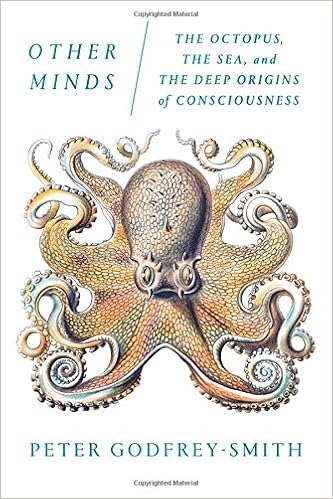In a previous life I once had to write what was at the time called a dissertation. Since the upper limit on word count was 4500 I feel the term barely qualifies anymore, but I still had to make it about two books rather than one. Since my teacher said that combining Animal Farm with Nineteen Eighty Four was a bad idea I went to the library, googled "books that are like Nineteen Eighty Four" and found Brave New World, which I duly took out and read. Without going into the unmitigated misery that book has imparted on my life I've often wondered what else I must have found from that search if I hadn't just picked the first response I could find. Well, I haven't wondered that at all, but I've always enjoyed dystopian fiction. Stuff about alternate realities that are recognisable yet still profoundly different. I don't even know why. I think I just like seeing how people - and I'm aware they're fictional - react to and exist in societies which are recognisable and relatable to our own yet differ in some fundamental fashion. While I made a reasonable dent in Orwell's whole canon last summer I never made it the whole way through and I think it must be about two years since I read Nineteen Eighty Four but something that book does which I've never seen in anything else, in any genre, is convey the fear which exists in an individual living in those conditions. For whatever dog whistling politicians and social commentators do nowadays with the term 'Orwellian' none of the things from that book they always reference relate to me as especially scary. Nor does the sense that the world of Oceania is in some way relatable to the world at large when the book was written or is any more relatable now. It's the fear. The fear that Winston experiences in doing things like sitting in a different place in his home. In having to live his entire life absolutely certain that an unlimited amount of people and resources are devoted to watching him to make sure he is leading his life properly, and that they will punish him instantly if he isn't. The amount of the thought police that turn up when he finally gets busted is a combination of inevitability and horror that's unimaginable. However trite and clichéd it might be for me to say that I've never read or had a reaction to a book like that, it's true. It's incomparable.
Many years ago in my googling my life could have turned out very differently if I had maybe searched a bit harder and come across a book called The Handmaid's Tale by Margaret Atwood which I've read this week. Here we have the story of a person living in a theocratic totalitarian regime established within a former bastion of freedom and triumphalism, with no personal freedom ready to have their life taken away and destroyed by the brutal and apparently omnipotent ruling order. Except, of course, there's one key difference. Well, several. It's set in America, the protagonist is a woman, and the ruling order is based on extreme religious orthodoxy. I won't bore you with comparisons between Big Brother and God, but the reverence in The Handmaid's Tale is saved for the actual God, not a man-made one. Wait, that's not right. Well, you know what I mean.
At this point I feel somewhat strange in giving a description of basic stuff like character names and backgrounds for something which I assume is somewhat ubiquitous to people who read books, especially here when I'm likely to be posting to a Canadian/North American audience. In any case, set in The Future, Offred, not her name but a literal description of the man who bore her, since in Gilead (which America is now called) women effectively have no rights and exist to be vessels for reproduction, which is dwindling rapidly due to fertility rates being affected by mass nuclear plant destructions and leakings. The ascent of the religious fundamental order which runs the place happened in much the same way 1984's Party came to power, or to again reference a thing I've read the ascent of Buzz Windrip in It Can't Happen Here. They seemingly come from nowhere and overthrow the government, subsequently telling everyone they're the only group to restore order. The book is continually personal and follows Offred as she lives under the behest of the Commander and the women who run her... well, what to call it? The harem, effectively, where the Handmaids like Offred live for the sole purpose of regular attempts at fertilisation by the Commander. Perhaps inevitably there's corruption, the people in charge aren't as devout and chaste as they'd like to appear, and there the magic happens.
There's several things in this book published in 1985 that I find interesting. The fact there seems to be a centralised computer network of some sort is interesting, all the money and stuff goes through that, which helps to limit the freedoms of women. Foresight like this helps the actual substance of the world seem more realistic, so points there. Elsewhere, it's a convincing world. Much like Winston Smith Offred remembers her pre-Gilead life, in fact in much more detail. Since the book is first person from her perspective the personal insight on both sides of the regime make the whole thing more eerily plausible. Although she and everyone else in her position has to adapt and tolerate what's going on to survive none of it seems out of the ordinary to her, that point is passed and the result almost makes her narration seem... mundane. She had a husband and a child and a best friend and a fiercely independent mother, they're all prominent in her mind but in her actions and thoughts in the present day she's so passive.
The sense of fear which I think underpins quality dystopian literature, of the absurd in Nineteen Eighty Four rather than the much more realistic and grim seen in Darkness at Noon for instance, is present too. There's the fear that her thoughts and any collusion with like-minded people will see them rounded up. There's the fear that the illicit relationship she strikes up with the Commander will see her cast out. Yet all of these things go on anyway. Ironically the times this fear for existence is strongest is whenever there are other women around. They seem the most zealous, the most devout, the most rigidly adherent to the way of life that's been imparted on them. The same goes for the other direction, as Offred's friend Moira (who is never given one of the Of- names, come to think of it) is consistently rebellious and sticks just as strongly to her own beliefs.
As is explained at the end of the book which I'll come to later the sense of personal insight we get from Offred is interesting in this type of story. I don't want to try and detail everything she says or does or thinks but the whole thing is very... real. She misses her husband and daughter and sees them everywhere, in the people she interacts with and the things she does with them. Yet the way it's always followed up with the helplessness of her situation makes it seem more hopeless. In my experience reading this type of story there's always a focus on the male perspective and I think the focus on familial relationships here sets it apart. Yet in the same way Offred doesn't think of anything that isn't normal. Her family, her life, the small details which defined love and normality and her desire to have them back, to experience them again. She even manages to find this in the ritual attempts at pregnancy, an act described with just the right amount of banal frankness.
The final twenty pages or so jump into metafiction as there's a talk at a Canadian university about the history of Gilead and this diary they found somewhere called 'The Handmaid's Tale,' and what these recorded tapes tell us of Gilean life. This attempt to explain an ending, an aftermath, no. I can't go for it at all. I can't even tell if it makes the ending clearer or not, I'm not really sure I got anything out of it besides a writer trying to add closure without adding closure. This epilogue is about the only criticism I would have of the book. Aside from lowering the sense of immersion you have from having a first-hand account of such an oppressive world it just feels like an exercise by the writer which doesn't achieve anything. I've only read a collection of Atwood's stories so I don't know if there's anything else in her work like this but there's no need for it here.
I've discovered that the recent TV series will be shown here soon (starting a week on Sunday, I think) and I look forward to it. The book is good, even allowing for that ending, and I think there's a lot of scope for a TV adaptation to be very successful. Given the means of power-grabbing in the book - the phrase "a return to traditional values" actually exists which I found much more terrifying than anything else I've described - I think a new adaptation with the world today could receive a willing and necessary audience.
















